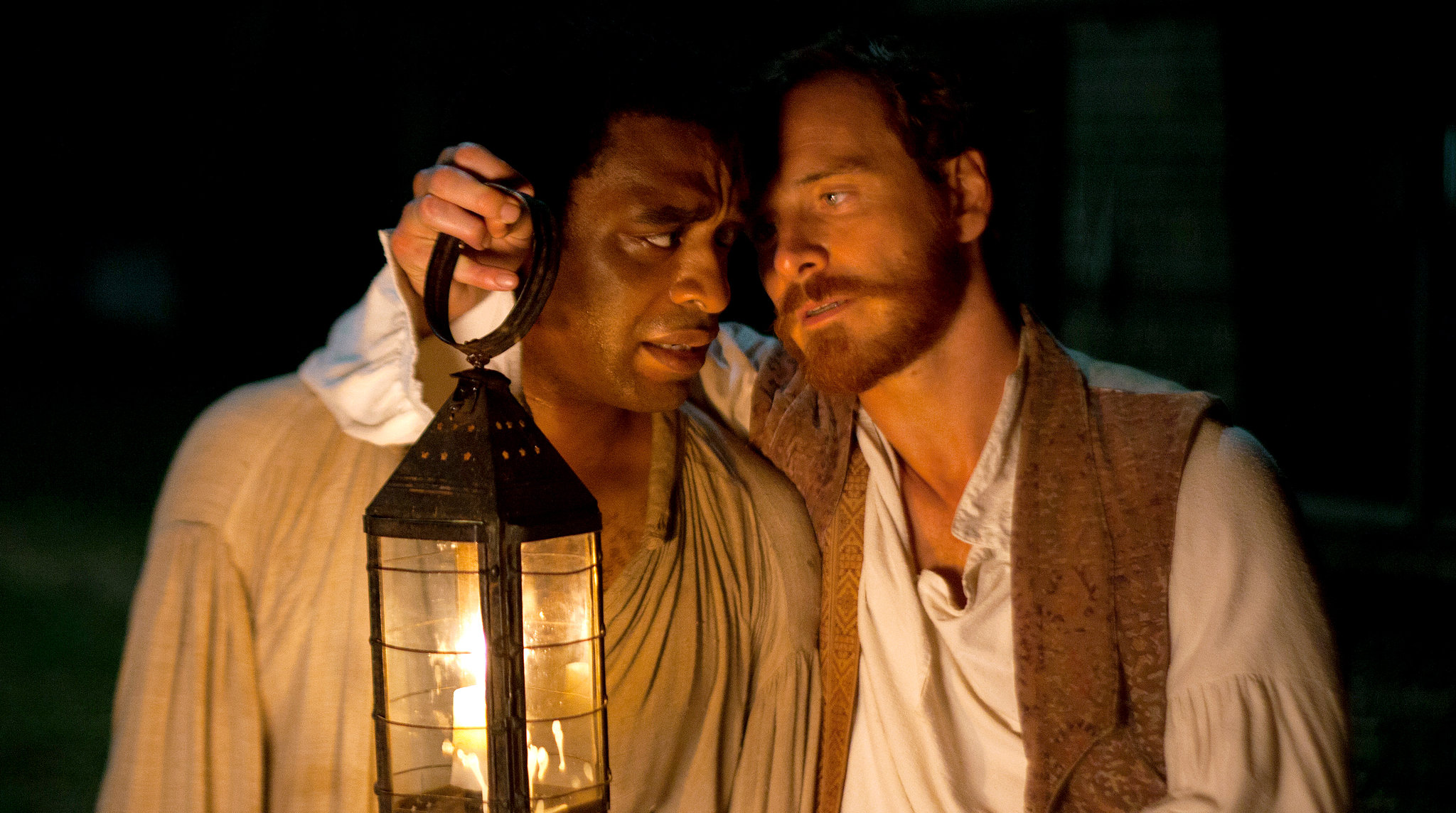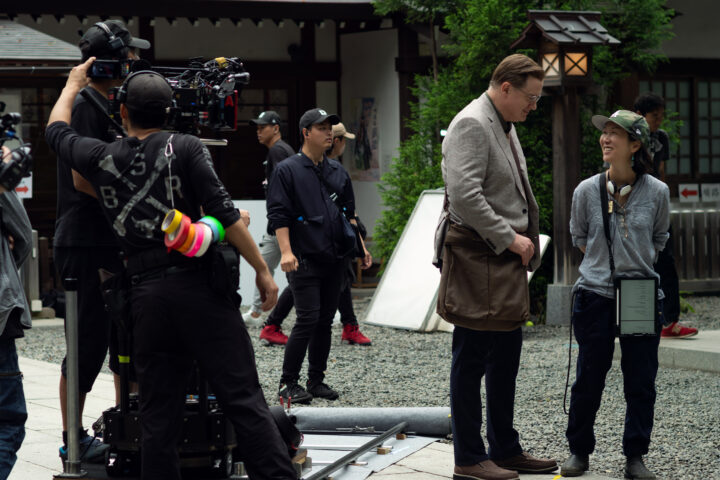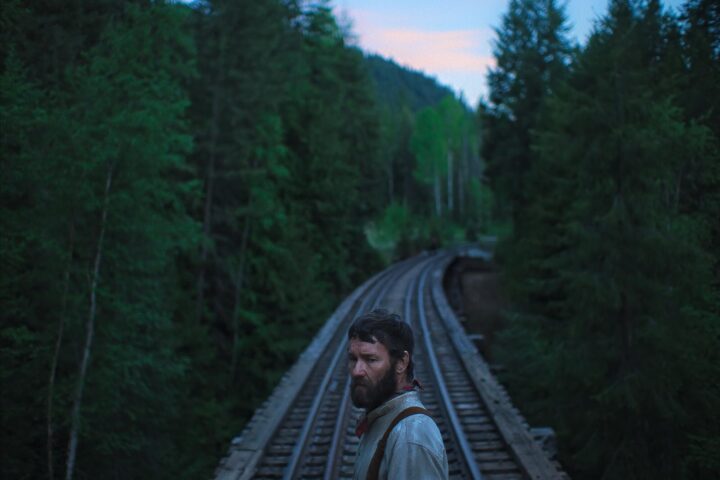It’s certain that some will find Steve McQueen’s 12 Years a Slave, the incredible true story of a free African-American musician from New York kidnapped and sold into slavery in the south circa 1841, too unflinching in its depiction of barbarism. But know this about 12 Years a Slave—it is as damning a cultural indictment as the movies have ever produced, and likely the most accurate depiction of an American shame we will ever see. We are a long way from the whitewashed world of Margaret Mitchell or Tarantino’s blazing revenge epic Django Unchained. It’s a bold movie that calls into question the human capacity for evil and the ability of its victims to bear such. And while it may be painful, it is also extraordinarily moving with a redemptive payoff that feels, after over two hours of degradation, immensely rewarding.
Based on his personal memoirs published in 1853, Solomon Northrup (a revelatory Chiwetel Ejiofor) was a devoted husband and father living in Saratoga, New York, a gifted violinist duped by a pair of charismatic hucksters upon accepting their invitation to join a circus production en route to Washington, D.C., where he is drugged and sold, along with scores of other free northerners, to slave traders headed to Louisiana. Northrup, who initially claimed his innocence and worked to convince his captors of his ability to read and write, eventually suppressed his entire identity to survive, living under a new name with hope for returning home fading fast.
Thus begins a twelve-year descent into a hell of beatings, whippings, hangings and killings at the hands of several plantation owners, including Paul Dano (whose comeuppance, when it comes, is exalting) and a hideous demon played by Michael Fassbender, who holds court over his poisonous wife (Sarah Paulson) and another slave played with power by a new actress named Lupita Nyong’o, whose Patsey is a pawn on the plantation, alternately used for sex and abuse, forced to pick over 500 pounds of cotton each day.
Ejiofor, the British star of Kinky Boots, Dirty Pretty Things, Love Actually and countless other supporting turns in American films, gives a performance of such naked emotion and searing vulnerability he positively aches when onscreen. He may be a slave, but he is not powerless, and he tries, without fail, to get letters to his family, empower the other slaves and feign ignorance as to stay alive. At one critical juncture, there is an extended close-up of his face—close to a minute—as he goes through a range of emotions, looking directly as us as if in a plea for help.
The ensemble cast is a likely Oscar nomination ballot, including Paul Giamatti as a cold-hearted slave trader who separates screaming children from their mother, played by the wonderful Adepro Oduye (Pariah), Benedict Cumberbatch as the sole compassionate slave owner who can’t abide by mistreatment, Alfre Woodard as the former slave married now married to her once-master and Brad Pitt in a very good performance of two scenes, as a Canadian abolitionist friend of Fassbender who meets Northrup while building a house and sets the film’s deeply moving final third into motion. Between them is a scene of such courage and compassion as Solomon works up the will to confide, knowing it could mean his death, Pitt’s idealist agreeing to an immeasurable risk.
In a career of only three pictures, beginning with Hunger and followed by Shame (which this picture could aptly be titled), British artist turned filmmaker McQueen takes a leap forward with a sprawling American epic, a personal story on a large canvas, a horror film masquerading as a drama. Both Hunger and Shame starred McQueen’s muse, Fassbender, who played imprisoned Irish hunger striker Bobby Sands and a debilitated sex addict in the unforgettable latter picture. Both were difficult sits with rich rewards; the same formula holds true here and Fassbender plays the vicious slave master as the personification of the devil. Like Eijofer and Nyong’o, he will certainly net an deserved Oscar nod.
In execution, there is nothing commercial or telegraphed about 12 Years a Slave, which sits squarely in art-film territory, an ugly testament set in a beautiful, sun-drenched place, as far from Tara as one could wander. Willow trees, boggy netherlands, thick forests and dank quarters—contrasted with ornate mansions—have the gritty pallor sheen of such notorious 70s exploitation pics Mandingo and Goodbye, Uncle Tom. Yet this seminal film has no such sensationalist agenda and is not the sweeping, glossy Hollywood prestige picture it might have been, but rather a dark, grainy, clear-eyed, truthful one in screenwriter John Ridley’s factual examination of unimaginable endurance.
For moviegoers, 12 Years a Slave is a risk-reward proposition. If you’re willing to go out on its limb, you will be deeply affected, and perhaps changed. How many recent movies can say as much?
4 stars.




I agree with every word 😉